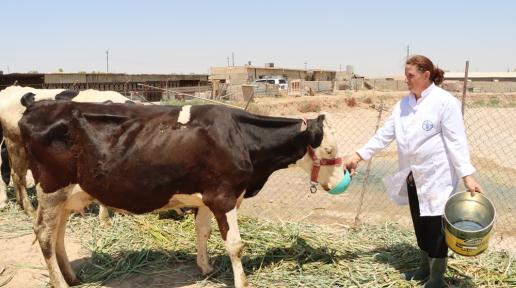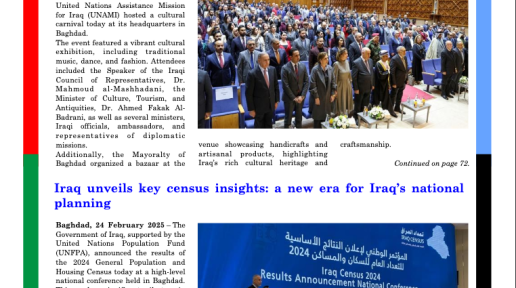Decent Work and Economic Growth
Sustained and inclusive economic growth can drive progress, create decent jobs for all and improve living standards.
COVID-19 has disrupted billions of lives and endangered the global economy. The International Monetary Fund (IMF) expects a global recession as bad as or worse than in 2009. As job losses escalate, the International Labor Organization estimates that nearly half of the global workforce is at risk of losing their livelihoods.
Even before the outbreak of COVID-19, one in five countries – home to billions of people living in poverty – were likely to see per capita incomes stagnate or decline in 2020. Now, the economic and financial shocks associated with COVID-19—such as disruptions to industrial production, falling commodity prices, financial market volatility, and rising insecurity—are derailing the already tepid economic growth and compounding heightened risks from other factors.
COVID-19 response
The COVID-19 pandemic has caused a historic recession with record levels of deprivation and unemployment, creating an unprecedented human crisis that is hitting the poorest hardest.
In April 2020, the United Nations released a framework for the immediate socio-economic response to COVID-19, as a roadmap to support countries’ path to social and economic recovery. It calls for an extraordinary scale-up of international support and political commitment to ensure that people everywhere have access to essential services and social protection. The socio-economic response framework consists of five streams of work:
- Ensuring that essential health services are still available and protecting health systems;
- Helping people cope with adversity, through social protection and basic services;
- Protecting jobs, supporting small and medium-sized enterprises, and informal sector workers through economic response and recovery programmes;
- Guiding the necessary surge in fiscal and financial stimulus to make macroeconomic policies work for the most vulnerable and strengthening multilateral and regional responses; and
- Promoting social cohesion and investing in community-led resilience and response systems.
These five streams are connected by a strong environmental sustainability and gender equality imperative to build back better.
The UN Secretary-General has stressed that the recovery from the COVID-19 crisis must lead to a different economy.
Beyond the immediate crisis response, the pandemic should be the impetus to sustain the gains and accelerate implementation of long-overdue measures to set the world on a more sustainable development path and make the global economy more resilient to future shocks.
Source: https://www.un.org/sustainabledevelopment/economic-growth/





















